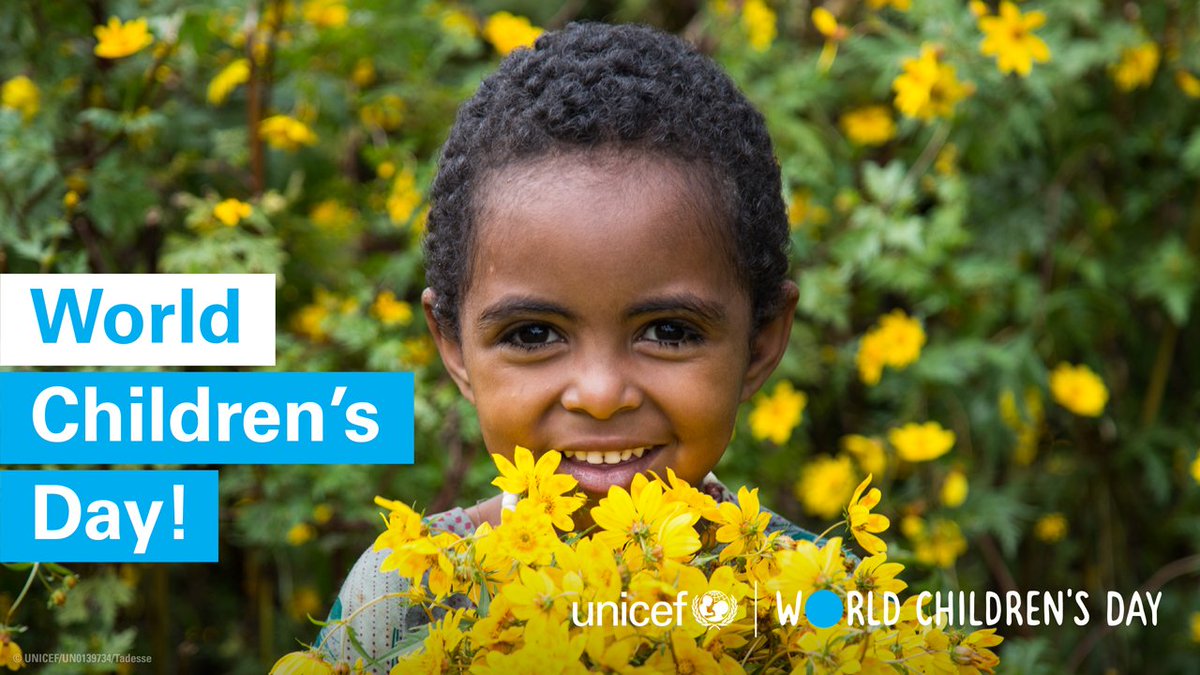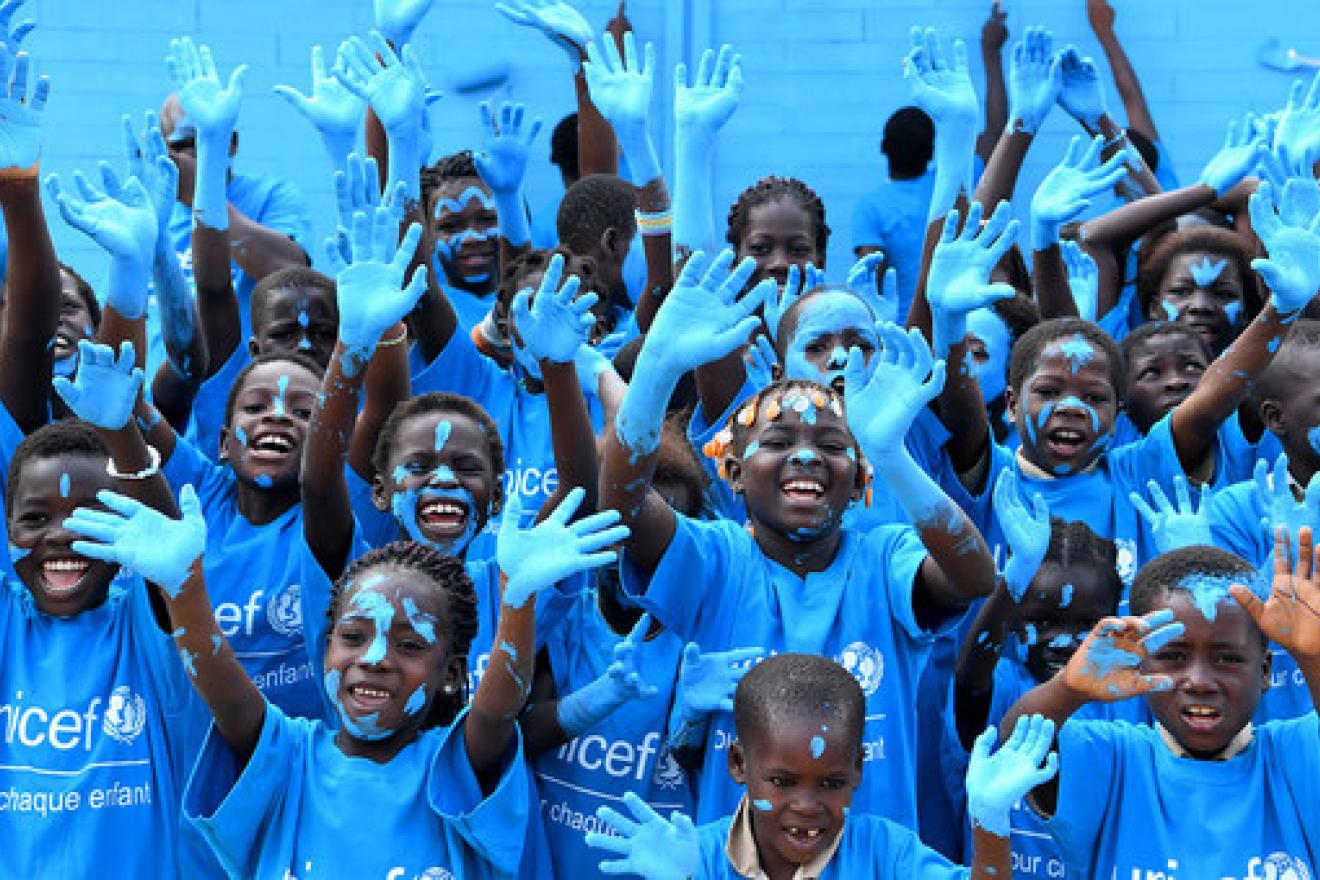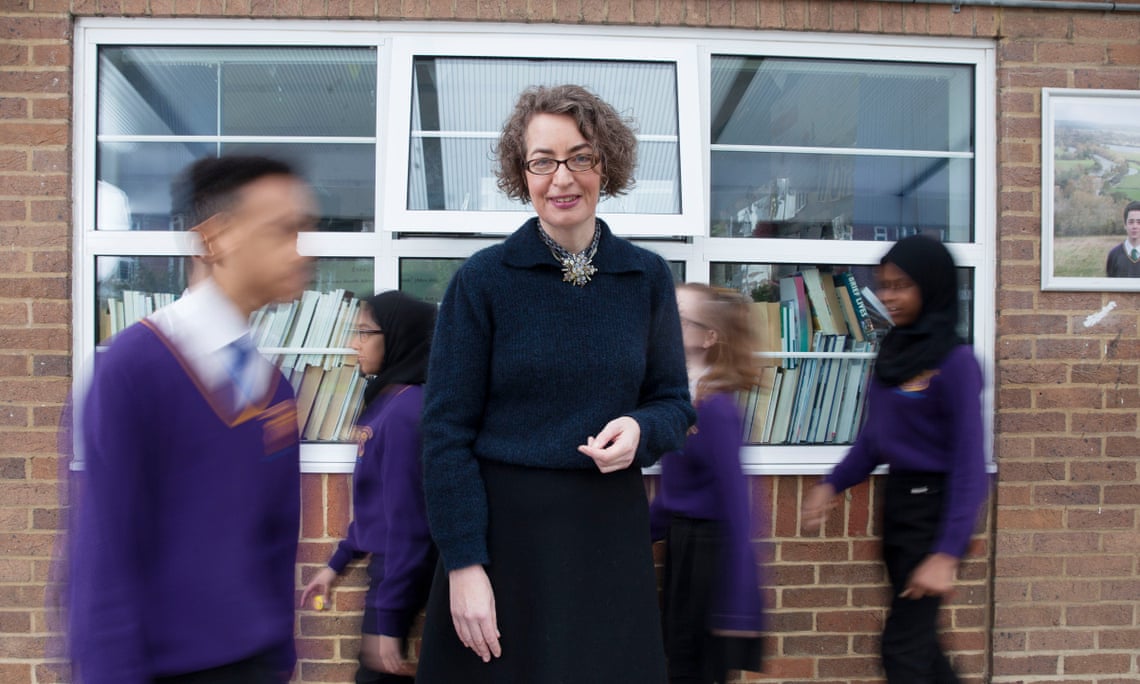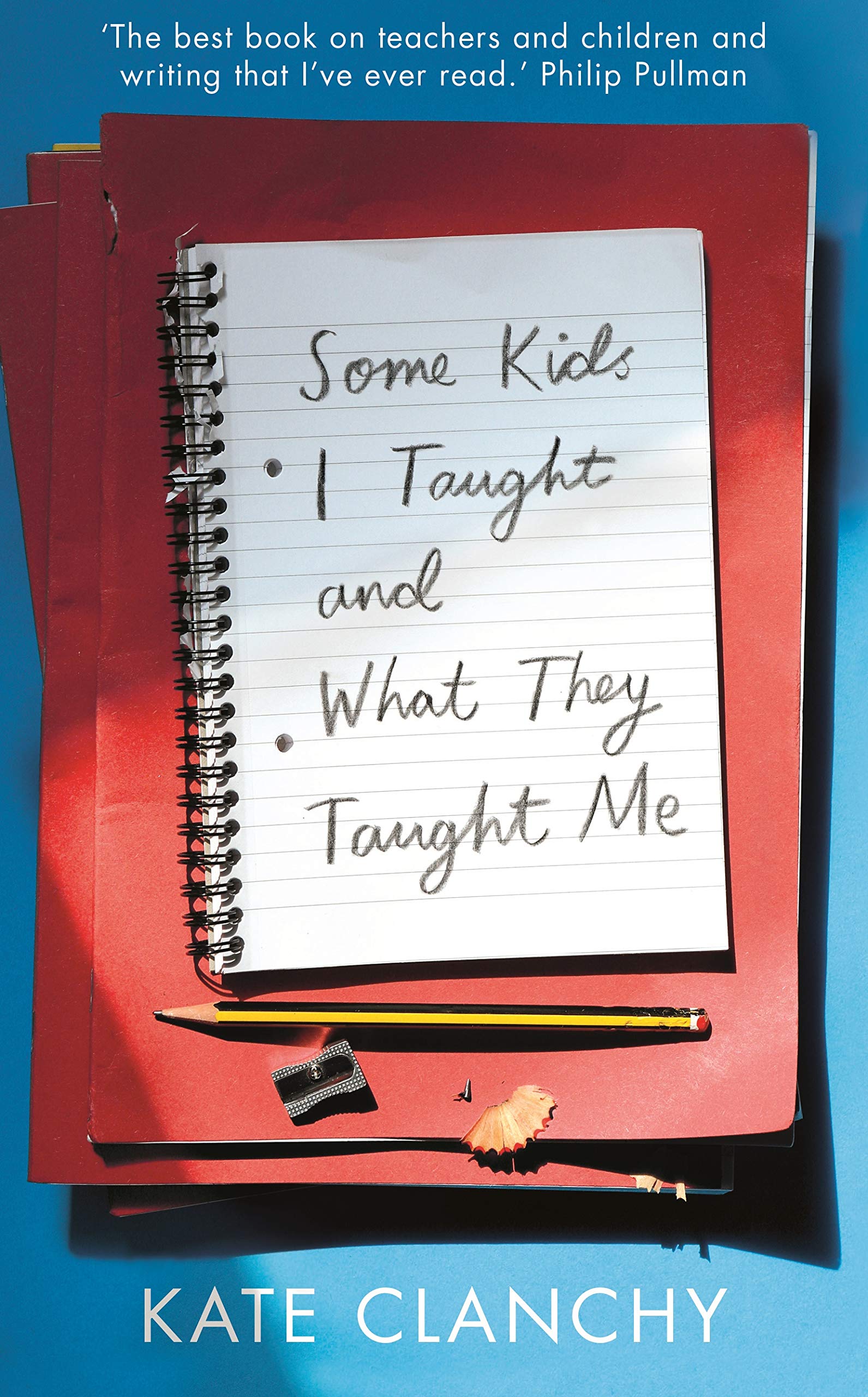credits: UNICEF
"Around the world, children are showing us their strength and leadership advocating for a more sustainable world for all. Let’s build on advances and re-commit to putting children first. For every child, every right."
UN Secretary-General António GuterresWorld Children’s Day was first established in 1954 as Universal Children's Day and is celebrated on 20 November each year to promote international togetherness, awareness among children worldwide, and improving children's welfare.
The year 2019 marks the 30th anniversary of the adoption of the Convention on the Rights of the Child (CRC). However, despite being the most ratified international text in the world today, many children's rights still strive to be respected around the world.
credits: UNICEF/UN0279228/John Isaac/UN Photo
Thirty years ago, world leaders made an historic commitment to the world’s children by adopting the United Nations Convention on the Rights of the Child – an international agreement on childhood.
"November 20th is an important date as it is the date in 1959 when the UN General Assembly adopted the Declaration of the Rights of the Child. It is also the date in 1989 when the UN General Assembly adopted the Convention on the Rights of the Child."
- Some facts:
World Children’s Day was first established in 1954 as Universal Children's Day and is celebrated on 20 November each year to promote international togetherness, awareness among children worldwide, and improving children's welfare.
Since 1990, World Children's Day also marks the anniversary of the date that the UN General Assembly adopted both the Declaration and the Convention on children's rights.
Pour chaque enfant, une vraie chance
"Mothers and fathers, teachers, nurses and doctors, government leaders and civil society activists, religious and community elders, corporate moguls and media professionals, as well as young people and children themselves, can play an important part in making World Children's Day relevant for their societies, communities and nations.
World Children's Day offers each of us an inspirational entry-point to advocate, promote and celebrate children's rights, translating into dialogues and actions that will build a better world for children.
This year is extra special, marking the 30th anniversary of the Convention on the Rights of the Child. A time to celebrate and a time to demand action for child rights. What will we do?
It’s become the most widely ratified human rights treaty in history and has helped transform children’s lives around the world.
But still not every child gets to enjoy a full childhood; too many childhoods are cut short.
"It is up to our generation to demand that leaders from government, business and communities fulfil their commitments and take action for child rights now, once and for all. They must commit to making sure every child, has every right."
- Why it's important?
Over the past 30 years, children’s lives have been transformed… ...but urgent action is needed to make sure every child, has every right. Ask your students to read here
Education:
"For every child, every right."
UNICEF
“It is shocking to see that the lives of many children are so heavily impacted by the horror of conflict, inequality, poverty and discrimination. I hope the the world that we must sustain our commitment to all of these children whose lives and futures are at stake can remember this."
Paloma Escudero, Unicef (adapted)
On this occasion, teachers of the world are organizing events, debates, activities where children's voices will meet the voices of other children, associations, experts and other committed actors, at the country where they live and teach and international level, by exploring the social media to reach other children, teachers, parents, committed actors:
Thematics:
Thematics:
- The right to education;
- The right to participation;
- The right to be protected against all forms of discrimination;
- The right to protection against all forms of violence.
World Children’s Day, during a celebration to commemorate 30 years
since the adoption of a milestone treaty that protects their rights.
credits: UNICEF/ Frank Dejong
Resources:
It’s World Children’s Day
https://www.unicef.org/world-childrens-day
Convention on the Rights of the Child
https://www.unicef.org/child-rights-convention
History of child rights
https://www.unicef.org/child-rights-convention/history-child-rights
Young activists do the talking as UN marks World Children’s Day
https://news.un.org/en/story/2019/11/1051791
The Convention at a crossroads: Read the special report
credits: UNICEF/UN0188083/Mohammed
Some thoughts:
Many schools and other educational institutions make a special effort to inform children of their rights according to the Declaration of the Rights of the Child and the Convention on the Rights of the Child.
Teachers alert their students to children in armed conflict countries, natural disasters and the impacts of climate change which deprive children of the chance to go to school and learn.
Rohingya children
credits: UNICEF/UN0331057/Nybo
For the last two years, more than 900,000 stateless Rohingya refugees living in the camps of the Cox’s Bazar district in southeast Bangladesh have focused on survival.
Rohingya children and young people want more than survival – they want a hopeful future, too.
So, World Children's Day is not a subject for a day, Along the school year, every day is child day! There so many children in emergency!
Teachers will develop different activities and projects according to the needs of their students, which country they live, the news students watch on television or read in the newspapers on Internet (yes students prefere to read the news on the Internet) or the news read on the social media.
30 years! A time to celebrate and a time to demand action. Kids are taking a stand around the world to say: it is time for every child, to have every right.
Migrant children are on the news every time, unfortunately. So as refugee children, some of them are lucky and can go to school.
Kate Clanchy
Photograph: Karen Robinson/The Observer
via The Guardian
Kate Clanchy an English teacher who helps migrant children turn pain into prize poetry! One child wrote of a suicide bomber; another of the ‘sweet honey mangoes’ of home. Read here
So beautiful! What a motivation she can give you and your students! Such a lovely example of a teacher!
Some Kids I Taught and
What They Taught Me
Kate Clanchy
Kate Clanchy wants to change the world and thinks school is an excellent place to do it.
She invites you and me to meet some of the kids she has taught in her thirty-year career.
'The best book on teachers and children and writing that I've ever read. No-one has said better so much of what so badly needs saying.'
Philip Pullman
G-Souto
20.11.2019
Copyright © 2019G-Souto'sBlog, gsouto-digitalteacher.blogspot.com®

Schools : CRC30Years : The 30th Anniversary of the Convention on the Rights of the Child : resources by by G-Souto is licensed under a Creative Commons Attribution-NonCommercial-NoDerivatives 4.0 International











No comments:
Post a Comment